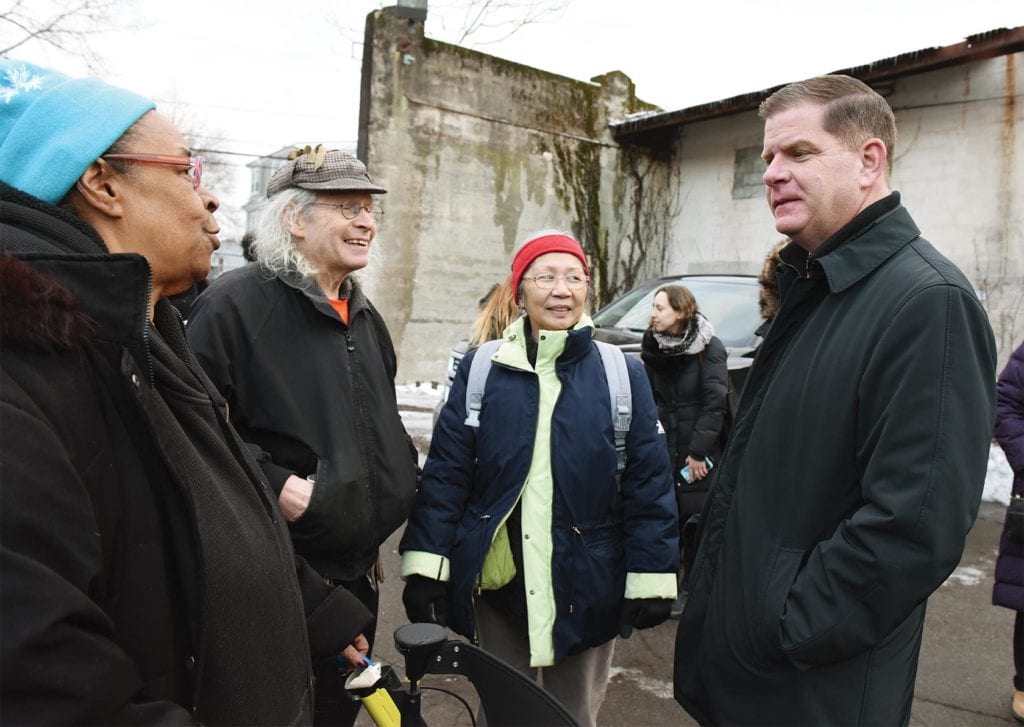Transformation comes to vacant Mattapan parcel
Housing complex will contain 76 affordable units

After more than 40 years during which the former Cote Ford dealership site sat vacant on Cummins Highway in Mattapan, city and state officials last week joined a development team to break ground on a three-building, 76-unit all-affordable housing development.
The project, which was approved by the Boston Planning and Development Agency board in July, is being advanced by the Mattapan-based Caribbean Integration Community Development group and the Planning Office for Urban Affairs, a nonprofit housing developer affiliated with the Roman Catholic Archdiocese of Boston.

Elected officials and community activists join in the ceremonial groundbreaking for an affordable housing development at the Cote Ford site in Mattapan. PHOTO: ISABEL LEON, MAYOR’S OFFICE
“This is a real win for Mattapan,” said Donald Alexis, president of Caribbean Integration Community Development. “This development is the first of its kind — a community that is truly all-affordable and built 100 percent by union laborers. Our goal was to create housing that reflects the needs of the working-class residents in Mattapan, and I believe we’ve accomplished that here.”
Speaking during the Dec. 18 groundbreaking ceremony, Mayor Martin Walsh praised the development for its affordable component.
“We’re creating beautiful new homes that will be affordable at a variety of income levels, something that we strive for every day,” Walsh said, speaking to a gathering of local officials and community activists during the groundbreaking ceremony. “We’re adding commercial space that is going to bring economic development to the neighborhood. When you think about a complete development, that’s what this is.”
Called Cote Village, the development will include a large 52-unit building facing Cummins Highway between the new Blue Hill Avenue station on the Fairmount commuter rail line and Regis Road. Two smaller apartment buildings are to be sited on Regis Road.
The project also includes 4,172 square feet of commercial space, a 12,000-square-foot public plaza and 84 parking spaces.
The range of affordability includes 12 units for residents with incomes at or below 30 percent of the area median income (AMI) of $79,350 for an individual, two units for those with incomes at or below 50 percent AMI, 42 units designated for at or below 60 percent AMI, 12 units for those at or below 80 percent AMI, and 12 units for those at or below 100 percent AMI.
The city’s high rents mean that the average Boston-area wage earner cannot afford market rate rent without subsidy.
The city and state are helping to finance Cote Village through a combination of tax credits and loans, as well as $750,000 from the Neighborhood Housing Trust and $4.8 million from the Inclusionary Development Policy fund.






